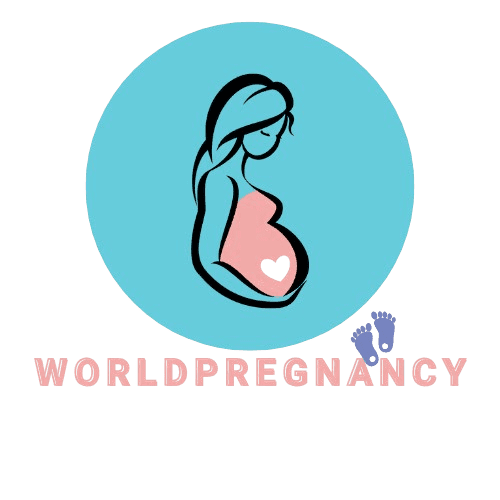Unlock Productivity in the Second Week: Tips for Success
Discover the best strategies to stay motivated and boost productivity during the second week. From goal-setting to time management, make your second week count!

Second Week of Pregnancy: What to Expect and How to Prepare
The second week of pregnancy marks a crucial phase in a woman’s reproductive cycle. While it may still be too early to confirm pregnancy through a test, significant changes are happening within the body in preparation for conception. This week is part of the preconception period, which sets the stage for fertilization and implantation.
Hormonal Changes and Ovulation
During the second week of pregnancy, the body experiences a surge in hormones, particularly estrogen and luteinizing hormone (LH). These hormonal changes stimulate the maturation of an egg within the ovaries and prepare the body for potential fertilization.
- Follicle-Stimulating Hormone (FSH): Encourages the development of follicles in the ovaries.
- Luteinizing Hormone (LH): Triggers ovulation, leading to the release of a mature egg.
- Estrogen: Thickens the uterine lining, making it suitable for implantation.
Ovulation typically occurs towards the end of the second week, which is the optimal time for conception. Understanding ovulation cycles can help couples increase their chances of getting pregnant.
Signs of Ovulation
Many women experience specific symptoms that indicate they are ovulating. These include:
- Increased Basal Body Temperature (BBT): A slight rise in body temperature signals ovulation.
- Changes in Cervical Mucus: Cervical mucus becomes clear, stretchy, and slippery, resembling egg whites.
- Mild Pelvic Pain: Some women experience slight cramping or discomfort in the lower abdomen.
- Heightened Libido: An increase in sexual desire often accompanies ovulation.
How to Increase the Chances of Conception
For couples actively trying to conceive, timing intercourse around ovulation is essential. Here are some tips to maximize fertility:
- Track Ovulation: Use ovulation predictor kits (OPKs) to detect LH surges.
- Monitor Cervical Mucus: Recognizing fertile cervical mucus can help pinpoint the best days for conception.
- Maintain a Healthy Diet: Folic acid, iron, and omega-3 fatty acids support reproductive health.
- Stay Hydrated: Proper hydration ensures optimal cervical mucus production.
Reduce Stress: High stress levels can disrupt hormonal balance and ovulation.
What Happens After Ovulation?
Once ovulation occurs, the egg travels through the fallopian tubes, where fertilization by sperm may take place. If fertilization occurs, the zygote begins its journey toward the uterus for implantation. If conception does not happen, the uterine lining will shed during the next menstrual period.
Early Pregnancy Symptoms
While it is still too early for most pregnancy symptoms, some women may notice subtle changes, including:
- Mild Cramping: Some experience light twinges as the fertilized egg moves.
- Increased Breast Sensitivity: Hormonal shifts may cause breast tenderness.
- Fatigue: Rising progesterone levels can make a woman feel more tired than usual.
- Heightened Sense of Smell: Some women become more sensitive to scents.
The Importance of Preconception Care
Taking proactive steps before conception can promote a healthy pregnancy. Here are key preconception health tips:
- Take Prenatal Vitamins: Folic acid supplements reduce the risk of neural tube defects.
- Maintain a Balanced Diet: Nutrient-rich foods support reproductive health.
- Exercise Regularly: Moderate physical activity enhances overall well-being.
- Avoid Alcohol and Caffeine: Limiting these substances can improve fertility outcomes.
- Visit a Healthcare Provider: A preconception checkup ensures optimal health before pregnancy.
Frequently Asked Questions
Can I Take a Pregnancy Test in the Second Week?
Yes, you can take a pregnancy test in the second week, but the accuracy may be low. Most home pregnancy tests detect the hormone hCG (human chorionic gonadotropin), which starts rising after implantation, typically around 6–12 days after ovulation.
If you take a test too early, it may give a false negative because hCG levels are still low. For the most reliable results, it’s best to wait until the first day of your missed period (around the 4th week of pregnancy).
If you need early detection, you can take a sensitive test (like a blood test or an early detection home test), but repeating the test a few days later may be necessary to confirm results.
What Should I Avoid in the Second Week of Pregnancy?
In the second week of pregnancy, you may not yet know you are pregnant, but if you are trying to conceive, it’s important to take care of your health. Here are some things to avoid during this time:
1. Alcohol and Smoking
- Avoid alcohol and smoking, as they can affect fetal development even in the earliest stages.
- Secondhand smoke can also be harmful.
2. Caffeine in Excess
- Limit caffeine intake to 200 mg per day (about one cup of coffee) to reduce the risk of complications.
3. Unhealthy Foods
- Avoid raw or undercooked meats, unpasteurized dairy, and high-mercury fish (like shark and swordfish).
- Reduce processed and junk food intake.
4. Excessive Stress and Strenuous Exercise
- Manage stress through relaxation techniques like meditation and gentle exercise.
- Avoid extreme workouts or activities that put excessive strain on your body.
5. Certain Medications and Chemicals
- Some medications can harm early pregnancy. Always check with your doctor before taking any new medicines.
- Avoid exposure to toxic chemicals, pesticides, and strong cleaning agents.
6. Poor Sleep and Dehydration
- Ensure you get enough sleep and stay hydrated to support your body’s health.
7. Hot Tubs and Saunas
- High temperatures can affect early pregnancy, so avoid hot tubs, saunas, and long hot baths.
Is It Normal to Have No Symptoms in the Second Week?
Yes, many women do not notice any symptoms during this time. The body is still preparing for a potential pregnancy.
The second week of pregnancy is a pivotal time in the reproductive cycle. Understanding ovulation, recognizing early signs, and adopting a healthy lifestyle can improve the chances of conception. Knowledge and preparation are essential, whether planning for pregnancy or simply learning more about the process.
